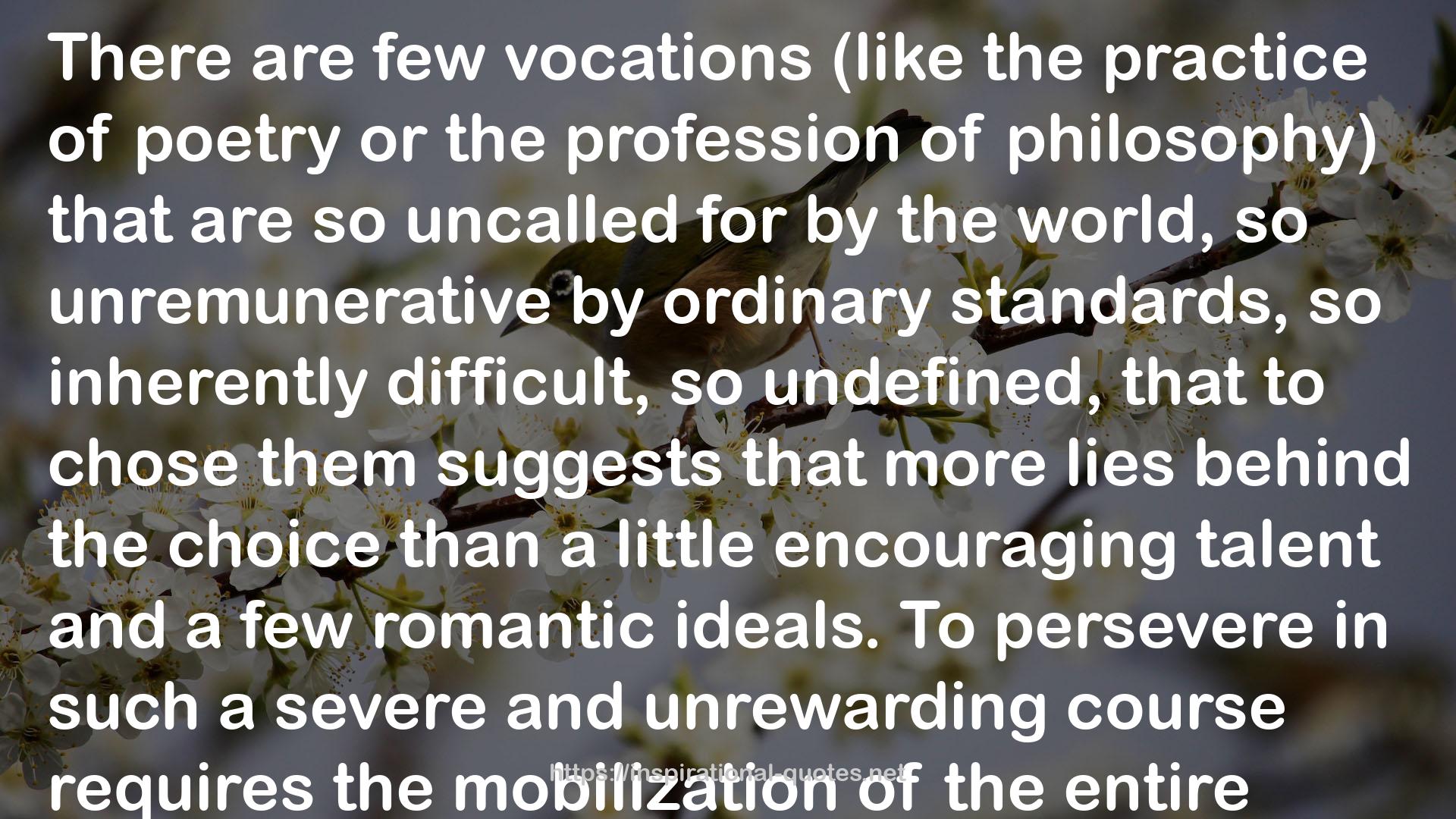" There are few vocations (like the practice of poetry or the profession of philosophy) that are so uncalled for by the world, so unremunerative by ordinary standards, so inherently difficult, so undefined, that to chose them suggests that more lies behind the choice than a little encouraging talent and a few romantic ideals. To persevere in such a severe and unrewarding course requires the mobilization of the entire personality--each weakness as well as every strength, each quirk as well as every normality. For any one of the reasons that a philosopher offers to support the principle he has taken in to feed and fatten, there will be in action alongside it, sometimes in the shade of the great notion itself, coarse and brutal causes in frequently stunning numbers, causes with a notable lack of altruism and nobility, causes with shameful aims and antecedents. This has to be understood and accepted. Valery's belief that every philosophy is an important piece of its author's autobiography need not be rejected as reductive; for whatever the subliminal causes and their kind are like, the principle put forth must stand and defend itself like a tree against the wind; it must make its own way out into who knows what other fields of intelligence, to fall or flourish there. -- From "At Death's Door: Wittgenstein "
― William H. Gass , Finding a Form
